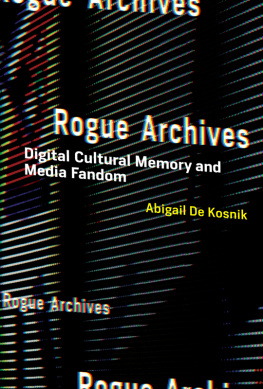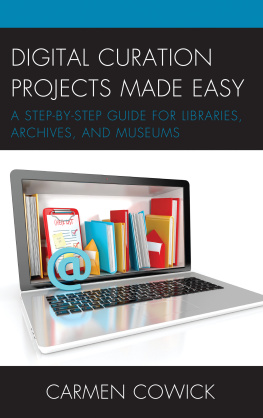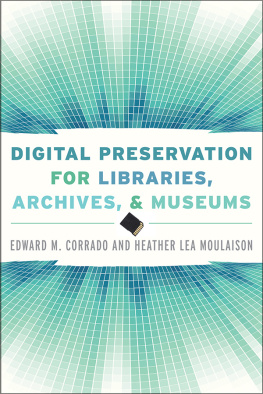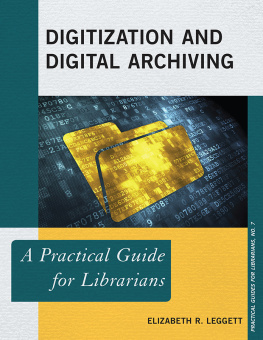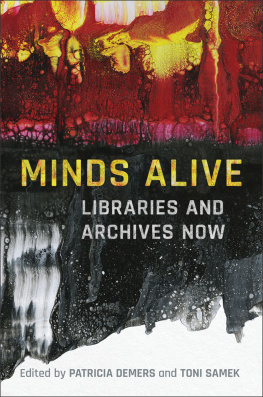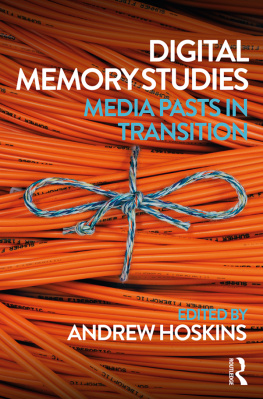Rogue Archives
Digital Cultural Memory and Media Fandom
Abigail De Kosnik
The MIT Press
Cambridge, Massachusetts
London, England
2016 Massachusetts Institute of Technology
All rights reserved. No part of this book may be reproduced in any form by any electronic or mechanical means (including photocopying, recording, or information storage and retrieval) without permission in writing from the publisher.
This book was set in Stone Serif and Stone Sans by Toppan Best-set Premedia Limited. Printed and bound in the United States of America.
Library of Congress Cataloging-in-Publication Data
Names: De Kosnik, Abigail, author.
Title: Rogue archives : digital cultural memory and media fandom / Abigail De Kosnik.
Description: Cambridge, MA : The MIT Press, [2016] | Includes bibliographical references and index.
Identifiers: LCCN 2015044395 | ISBN 9780262034661 (hardcover : alk. paper)
eISBN 9780262336758
Subjects: LCSH: Fan fiction--Archival resources. | Digital media--Social aspects. | Collective memory. | Digital preservation.
Classification: LCC PN3377.5.F33 D425 2016 | DDC 026/.8083--dc23 LC record available at https://lccn.loc.gov/2015044395
ePub Version 1.0
For Benjamin, my husband
and
Rosita, my late mother
Both computer programmers
Both creative fans
Both loving and beloved
Mahal na mahal kita
Acknowledgments
Thanks to Benjamin for your endless reserves of love and warmth. Thanks to all of the members of my large family and my wonderful friends, for your care and affection, and for always encouraging me to watch as much television as I wanted. Thanks to my fantastic professors at Northwestern University, especially Samuel Weber, Lynn Spigel, Alexander Weheliye, and Jeffrey Sconce, for your invaluable mentorship, training, and advising as I launched this project. Thanks to all of the phenomenal faculty, staff, and students at the University of California, Berkeley, with whom I have worked, especially those at the Berkeley Center for New Media and in the Department of Theater, Dance, and Performance Studies, for giving me a tremendous amount of help and motivation as I labored on this manuscript. Special thanks to Shannon Jackson, Catherine Cole, Mark Griffith, Ken Goldberg, Greg Niemeyer, Laurent El Ghaoui, San San Kwan, Angela Marino, David Bates, Shannon Steen, Lisa Wymore, Brandi Wilkins Catanese, and Peter Glazer for your support and feedback, and for believing in my potential. Infinite thanks to all of my students who played crucial roles in bringing this book into being, especially Andrea Horbinski, Andrew Godbehere, Adam Hutz, Lisa Cronin, Rene Pastel, Julia Havard, Kate Mattingly, Megan Hoetger, Kelsey Wong, and all of the undergraduate transcribers. My heartfelt thanks also to all of the fan archivists, fan authors, fan artists, and fan readers who contributed their works and words, and who have long been my inspiration. Eternal gratitude to Henry Jenkins, Diana Taylor, Lisa Nakamura, and Wendy Chun for your brilliant input, insights, and advice. My deepest appreciation to my editor, Doug Sery, and the team at the MIT Press, particularly Susan Buckley and Judith Feldmann, for allowing me to share this work with the world.
The research projects through which I collected the primary data for this book were made possible by grants from the Hellman Fellows Fund, the Humanities Research Fellowship, the UC Berkeley Committee on Research, and the Townsend Center for the Humanities. Many thanks to each of those organizations.
An earlier version of Break 0 was published in Transformative Works and Cultures, vol. 18 (2015).
Every reasonable attempt has been made to identify owners of copyright. Errors or omissions will be corrected in subsequent editions.
Introduction
Memory Escapes the State
Memory has gone rogue. What I mean by this, first of all, is that memory has fallen into the hands of rogues.
From the late nineteenth through the late twentieth century, memorynot private, individual memory, but public, collective memorywas the domain of the state. Writes Tony Bennett in The Birth of the Museum, Museums, galleries, and, more intermittently, exhibitions played a pivotal role in the formation of the modern state and are fundamental to its conception as, among other things, a set of educative and civilizing agencies. Bennett points out that all developed nation-states have consistently prioritized funding for their memory institutions, and have benefited from these institutions serving as mechanisms for the permanent display of power, and as influential cultural technologies that testify to the states ability to command, order, and control objects and bodies, living or dead (Bennett 1995, 66). Achille Mbembe argues that the term archives is first of all understood as referring to a public institution, which is one of the organs of a constituted state. There is no state without archives (Mbembe 2002, 19, 23).
But when digital networked media began displacing earlier forms of transmission (television, radio, cinema, print) as what Philip Auslander calls the cultural dominant (Auslander 2008, 23) in regions with widespread Internet access, the ties binding public memory to the state began to loosen, and memory started to forge links with many other masters: people who never underwent training in library and information sciences (LIS) but designated themselves archivists anyway, built freely accessible online archives, and began uploading (or assisting users with uploading) whatever content they deemed suitable for digital preservation. Digital archiving, while of increasing interest to traditional memory institutions, has been most enthusiastically embraced by nonprofessionalsby amateurs, fans, hackers, pirates, and volunteersin other words, by rogue memory workers. Digital archives of cultural content, not associated with any physical museum, library, or archive, populate the Internet, to the point that many people refer to the Internet as a giant archive. (For example, Lev Manovich states in The Language of New Media, The Internet can be thought of as one huge distributed media database [Manovich 2001, 55].)
Rogue archivists explore the potential of digital technologies to democratize cultural memory. With digital tools and networks, they construct repositories that are accessible by all Internet users, and can choose to preserve either vast quantities of information (they do not have to choose to save some types of content and discard other types because of physical space restrictions) or highly specific materials (such as the documents of subcultures or minority groups) that have been consistently excluded or ignored by traditional memory institutions. In Rogues, Jacques Derrida relates the rou or rogue, the figure of licentiousness and debauchery in French culture since the eighteenth century, to democracy: Democracy, the passage to democracy, democratization, will have always been associated with license, with taking too many liberties, with the dissoluteness of the libertine, with liberalism, indeed perversion and delinquency, with malfeasance, with failing to live according to the law, with the notion that everything is allowed, that anything goes (Derrida 2005, 21). In other words, the process of ending monarchy and inaugurating democracy in France depended on rogues willing to take liberties with the very notion of liberty and make themselves over from kings subjects into republican citizens. Similarly, since the late-1980s advent of what we might call the public Internet (that is, the time when the Internet ceased to be a network usable only by government, university, and research lab employees, and became a network with which millions of people engaged on a daily basis), rogue archivists have acted on the assumption that anything goes on the network, taking the initiative to design, found, and run their own cultural memory institutions without waiting for traditional institutions to set any precedents for online archiving, and achieving a degree of democratic inclusion and access for which brick-and-mortar archives never even aimed. What I call

